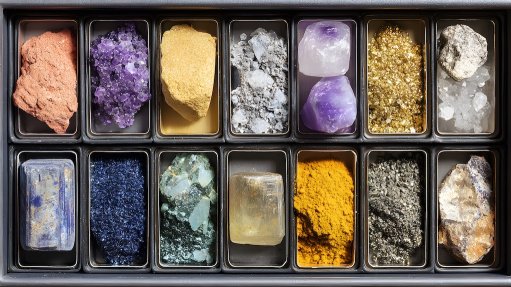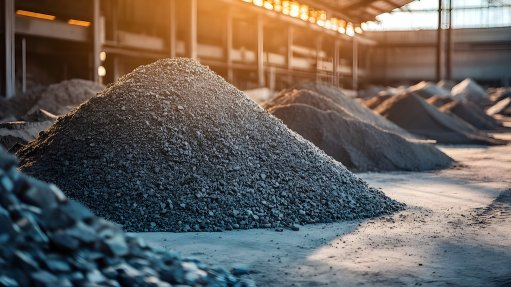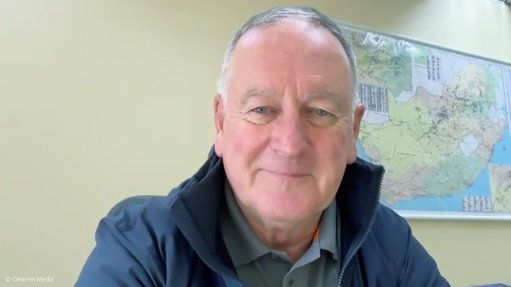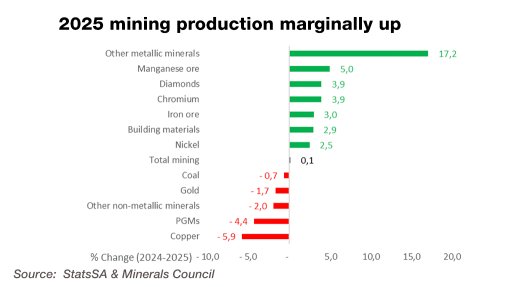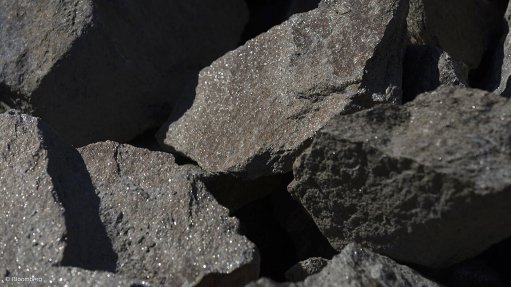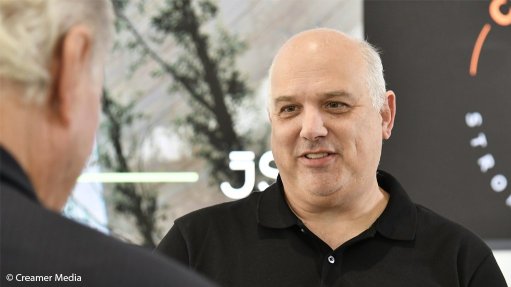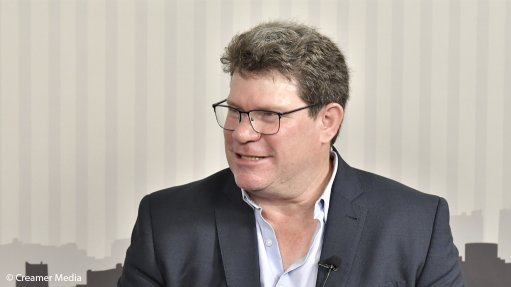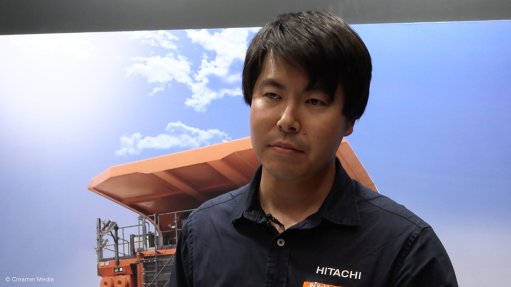South Africa's science, innovation dept launches circular minerals, metals initiative

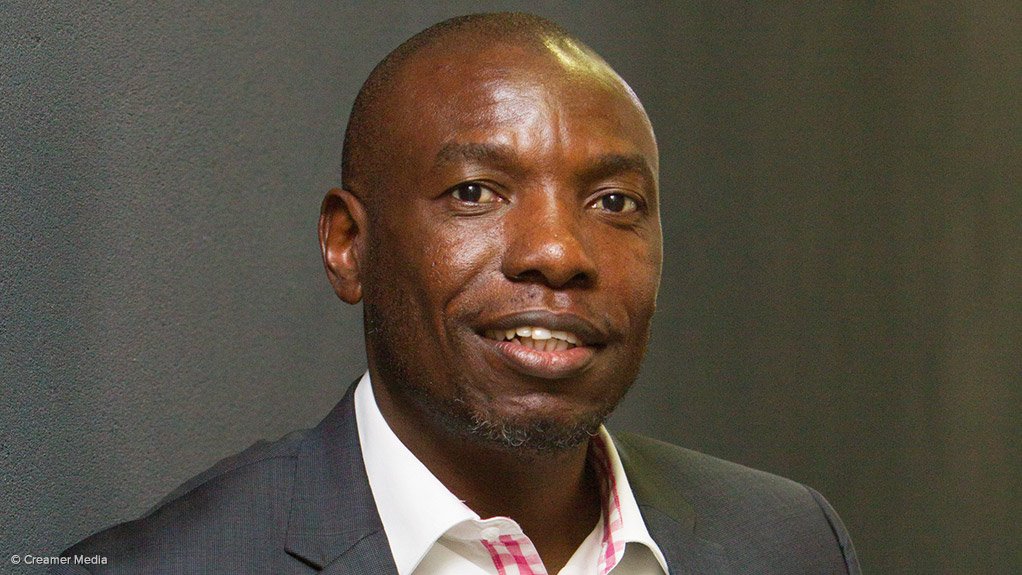
DSI technology innovation deputy director general Mmboneni Muofhe
Photo by Creamer Media
South Africa's Department of Science and Innovation (DSI), through the Council for Scientific and Industrial Research (CSIR), has launched the first of three new government-led collaborative circular economy initiatives focusing on priority economic sectors that were identified by government in the science, technology and innovation (STI) 2022 to 2032 decadal plan.
The first of the three initiatives, the South African Circular Minerals and Metals Initiative (SACMMI), was launched in Pretoria, on April 11. The other two, the South African Circular Agricultural Initiative (SACAI) and the South African Circular Manufacturing Initiative (SACMI), will follow.
The mandate of these initiatives is to drive sector-specific circular economy STI to support the development of these sectors and to fast-track the uptake of circular interventions.
“The circular economy is not a nice to have. It's also not an environmental agenda. It's a social and economic and an environmental imperative for every country as we face growing resource scarcity,” DSI and CSIR circular innovation South Africa manager Professor Linda Godfrey explained.
She revealed that the SACMMI was aimed at creating an opportunity to embed circular economy STI within the National System of Innovation (NSI), as well as to build local and international STI partnerships. Ultimately, the goal is to provide real benefits to the local mining sector.
She noted that the DSI would publish calls for expressions of interest to host the SACAI and the SACMI, respectively.
Godfrey emphasised that the circular economy was not about waste management, but rather about sustainable resource management in support of development. She said that a circular economy transition was an economic, social and environmental imperative for every country globally, and that South Africa’s universities and science councils would be crucial to evidencing this transition. They would also play a central role in derisking circular economy solutions and developing new innovative circular economy solutions.
“We look forward to collaborating with public- and private-sector partners, and driving impact through these new circular economy initiatives,” she said.
Godfrey said government recognised the circular economy as a new source of economic growth for a re-industrialised and modernised economy, with a strong role for STI.
She explained that investment in STI for a circular economy would provide the means to unlock technology opportunities through technology development, localisation and adaptation. It would also help evidence decision-making in both the public and private sectors, and drive policy development and implementation.
Such investment would also support businesses to derisk and scale interventions, thereby bringing academia closer to business, especially small to medium-sized enterprises.
“The circular economy is not new to South Africa. We've been doing a lot of these things for many years. We just never called it circularity. We haven't yet achieved the scale for meaningful impact. How do we assist in fast-tracking the adoption and scaling of these interventions?” Godfrey said.
“I honestly do believe that the circular economy provides an entirely different future or trajectory in terms of our growth as an African continent. With that comes the exciting opportunity for small businesses. I don't even think we've scratched the surface in terms of those opportunities for the continent,” Godfrey said.
Mandela Mining Precinct (MMP) executive director Julie Courtnage said the SACMMI provided an opportunity to build a national system of innovation and capability, to directly support industry and other sector stakeholders in the adoption and acceleration of circular practices and technologies.
She noted that collaboration and partnerships would be instrumental to the success of this initiative. So far, the MMP and CSIR were fully on board, with talks being entered into with Mintek, the University of Cape Town, and the Council for Geoscience to also come on board.
"There is no way that we can do this alone. Radical collaboration is the only way forward. I use the term radical because we talk collaboration and so often, we find ourselves hamstrung by protectionism, by fear, or by ego. I really hope that as a precinct, we can help bridge some of those perceived barriers that exist mostly in our minds and not in reality."
Courtnage explained that one of the first activities that would need to take place following the SACMMI launch would be a stakeholder workshop to be hosted midyear to develop a national circular minerals and metals research agenda. This would be in response to the STI decadal plan and would also serve as a substrategy to the DSI’s STI for a Circular Economy Strategy.
This workshop would need to address what circularity means for minerals and metals availability, extraction and use in South Africa, as well as explore where the knowledge or research gaps are to determine research priorities. Critically, the key stakeholders in each focus area need to be identified, from research collaborators to partners and decision-makers.
The aim of this workshop would be to produce a national STI substrategy on circularity in minerals and metals in South Africa and to build a network of STI partnerships.
Courtnage added that the critical minerals space was vital within the circularity agenda, as circularity was a vital consideration in the competitiveness of the sector.
“Therefore, we have just signed off on a critical minerals competitive assessment project that is going to be undertaken as one of MMP's strategic initiatives this year. It is being coordinated by the CSIR mining cluster,” she said.
DSI technology innovation deputy director-general Mmboneni Muofhe voiced government’s support.
“We are committed in ensuring that the circular economy is indeed becoming mainstreamed in whatever we promote in terms of research but also in terms of implementation. That is why we are making sure that all sectors, including the private sector, government and civil society, are really part of this process,” he said.
Article Enquiry
Email Article
Save Article
Feedback
To advertise email advertising@creamermedia.co.za or click here
Announcements
What's On
Subscribe to improve your user experience...
Option 1 (equivalent of R125 a month):
Receive a weekly copy of Creamer Media's Engineering News & Mining Weekly magazine
(print copy for those in South Africa and e-magazine for those outside of South Africa)
Receive daily email newsletters
Access to full search results
Access archive of magazine back copies
Access to Projects in Progress
Access to ONE Research Report of your choice in PDF format
Option 2 (equivalent of R375 a month):
All benefits from Option 1
PLUS
Access to Creamer Media's Research Channel Africa for ALL Research Reports, in PDF format, on various industrial and mining sectors
including Electricity; Water; Energy Transition; Hydrogen; Roads, Rail and Ports; Coal; Gold; Platinum; Battery Metals; etc.
Already a subscriber?
Forgotten your password?
Receive weekly copy of Creamer Media's Engineering News & Mining Weekly magazine (print copy for those in South Africa and e-magazine for those outside of South Africa)
➕
Recieve daily email newsletters
➕
Access to full search results
➕
Access archive of magazine back copies
➕
Access to Projects in Progress
➕
Access to ONE Research Report of your choice in PDF format
RESEARCH CHANNEL AFRICA
R4500 (equivalent of R375 a month)
SUBSCRIBEAll benefits from Option 1
➕
Access to Creamer Media's Research Channel Africa for ALL Research Reports on various industrial and mining sectors, in PDF format, including on:
Electricity
➕
Water
➕
Energy Transition
➕
Hydrogen
➕
Roads, Rail and Ports
➕
Coal
➕
Gold
➕
Platinum
➕
Battery Metals
➕
etc.
Receive all benefits from Option 1 or Option 2 delivered to numerous people at your company
➕
Multiple User names and Passwords for simultaneous log-ins
➕
Intranet integration access to all in your organisation







